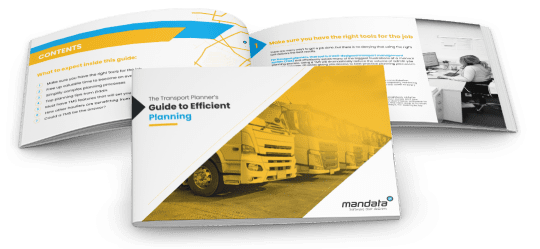How Transport Management System Simplifies Route Planning in Road Haulage
In the world of modern transport, efficient route planning is crucial for businesses seeking to optimise their supply chain operations and deliver exceptional customer service. As the complexity of transport continues to grow, so does the need for sophisticated tools and technologies to streamline the process. Transport Management System (TMS) emerges as a powerful solution that improves the way hauliers approach route planning. In this blog article, we will explore how TMS simplifies route planning, leading to more efficient transport operations and enhanced customer satisfaction.
What is a Transport Management System?
A transport management system is a digital software solution that hauliers use to automate day-to-day transport jobs and tasks. It is a logistics software platform that transport operators use to make it easier to plan and carry out the transportation of goods, improve route planning efficiency, and improve compliance.
Read more: What is a transport management system?
Read more: What is route planning software?
Here are some of the ways a TMS system can simplify route planning.
Finding the Best Routes
Gone are the days of relying on paper maps and outdated directions. TMS harnesses the power of technology and data to uncover the most optimal routes for each delivery. It takes into account variables like traffic conditions, distance, low bridges and delivery windows to calculate routes that minimise travel time and fuel expenses. By finding the shortest, fastest, and most efficient paths, TMS empowers companies to reduce their carbon footprint and empty mileage while ensuring timely deliveries.
Optimal Stop Sequencing
Imagine a puzzle where each piece represents a delivery stop, a TMS software excels at putting these pieces together in the most efficient order. It sequences the stops in a way that minimises backtracking, eliminates unnecessary travel (empty miles), and maximises time and resource utilisation. The result is a streamlined delivery process that ensures deliveries are made in the most logical and efficient sequence.
Load Planning and Consolidation
Maximising the use of available space in delivery vehicles is a constant challenge. A TMS software examines the various shipments and intelligently facilitates a most informed decision from the planner to make appropriate amendments. This not only optimises vehicle capacity but also reduces the number of trips needed, helping to get jobs done quicker, more efficiently, whilst reducing empty mileage on your vehicles. By loading more into each vehicle, transport companies achieve substantial cost savings and a greener environmental footprint.
Read more: How Transport Management Systems Improve Efficiency in Haulage
A.W. Jenkinson Transport improves load allocation and route planning
“Mandata TMS gives an accurate real time picture of all planned routes including empty legs between loads enabling us to identify and address any vehicles carrying empty trailers over excessive miles.”
Dave Lindop, Finance Director at A.W. Jenkinson
Resource Allocation
Allocating the right resources – vehicles and drivers – to the right tasks is a critical aspect of successful transport planning. TMS uses real-time data to match available resources with specific routes and delivery requirements. It considers factors like driver availability, vehicle capacities, and skills. This intelligent allocation ensures that every resource is used efficiently, resulting in fewer empty miles and higher overall productivity. Not only this, but using industry standard software such as a TMS, this allocation of drivers and vehicles is so easy and quick to do.
Customer self-service
Having a customer portal enables your customers to become self-sufficient when booking jobs. Encouraging your customers to use a self-service customer portal will alleviate the pressure of dealing with a large volume of customer requests over the phone. Customers will be able to manage their jobs from initial booking to status updates and proof documents (such as ePODs), vastly reducing time spent on inbound customer inquiries.
Read more: How Transport Management System Helps Enhance Customer Service
Delivery Scheduling
Meeting customer expectations is at the heart of transport planning, and without it, your customers will lose faith, and question reliability. TMS systems help create precise delivery schedules that cater to customer preferences, delivery windows, and priority orders. With a TMS, companies can avoid over-committing or under-delivering, striking the delicate balance between efficiency and customer satisfaction.
In the realm of transport planning, a well-executed strategy can make all the difference. Transport Management Systems (TMS) shine as the guiding light in this endeavour. From route planning to load consolidation, resource allocation to delivery scheduling, TMS empowers companies to navigate the complexities of modern transport with great precision.
Learn more: 9 Benefits of a Transport Management System for Haulage Businesses

